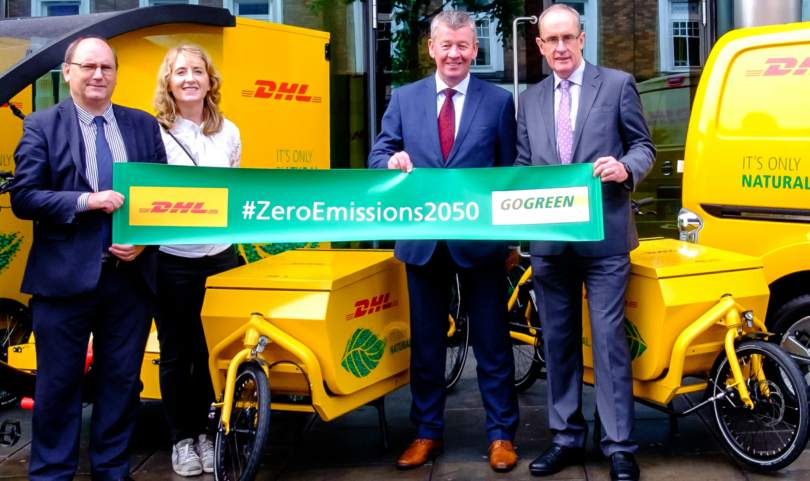Logistics company DHL has introduced what it calls “environmentally-friendly eco-delivery vehicles” at its Dublin base on Pearse Street.
A completely electric delivery van will replace two diesel-powered vans, with four semi-electric cargo bikes taking up some more slack. The company says the new vehicles, combined with removing the diesel vans, will make the Dublin base carbon neutral and cut more than 3,200 litres of diesel burned annually.
Managing director Bernard McCarthy said: “This is an important development for DHL Express in Dublin City. We have a large customer base in and around the city and it’s very important that we service these customers with clean and sustainable transport solutions.”
Dublin City chief executive Owen Keegan added: “Dublin City Council very much welcomes this initiative by DHL to move to a more sustainable delivery model in Dublin, and believes this initiative shows how a new way of delivering in the city is both good for the city and for the companies involved.”
The Deutsche Post DHL Group owns StreetScooter GmbH, which makes the vans, and intends to sell the vehicles to other operators as well as introduce them to its own services. In May last it opened a second factory to boost production to the 20,000 annual target.
Among those who have bought the StreetScooter vans is English milk delivery company Milk and More, which is adding 200 to its fleet and thereby reviving an apparently bygone era.
DHL and Deutsche Post have more than 6,000 of the vehicles in service in Germany.
The semi-electric bike is a reclining vehicle powered largely by human muscle, the delivery rider, but with electric assist for hills and added speed where necessary.
DHL Express Europe chief executive John Pearson commented: ”Bicycles offer a number of advantages in express delivery operations.They can bypass traffic congestion and make up to two times as many stops per hour than a delivery vehicle. The total cost of ownership over their lifetime is less than half of a van. And, crucially, they generate zero emissions.”








